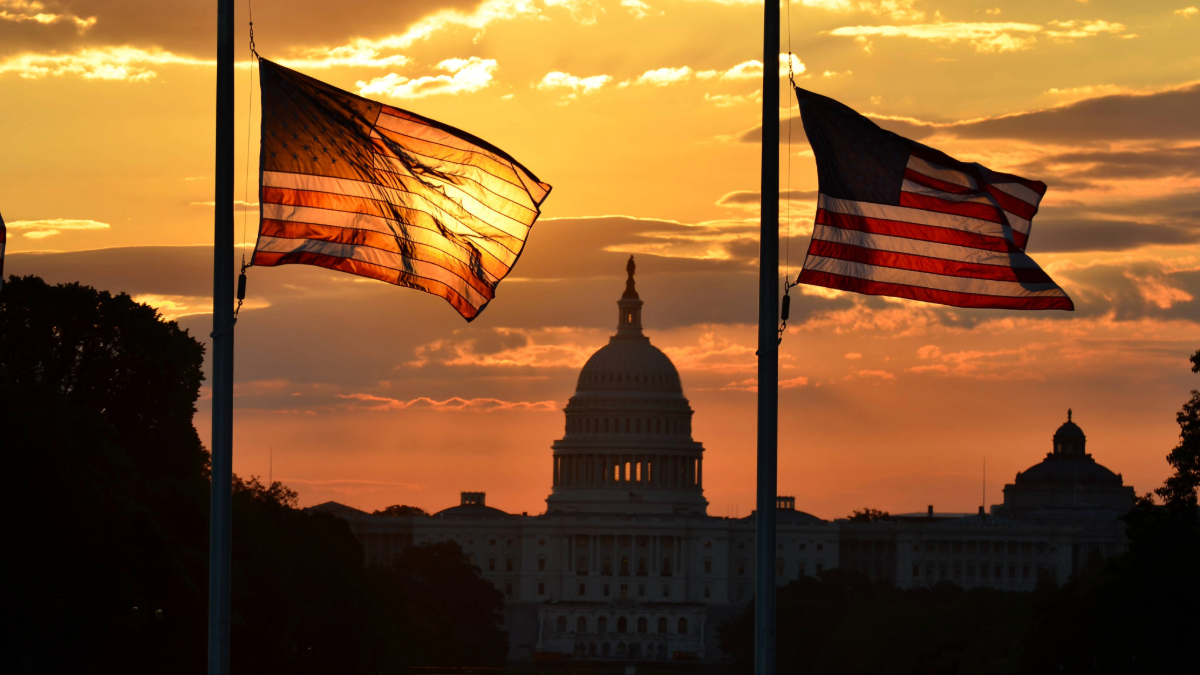The US Just Logged Off from Internet Freedom
Konstantinos Komaitis / Jul 16, 2025Last week, the United States Department of State underwent its most sweeping restructuring in decades. In one stroke, over 1,350 employees were dismissed, and more than 300 bureaus and offices—out of approximately 734 domestic units—were merged, absorbed, or outright eliminated. Units focused on democracy promotion, human rights, anti-trafficking, and refugee resettlement were among the hardest hit, with many of their responsibilities having been consolidated and repurposed with an explicit emphasis on “Western values.” In parallel, the US Agency for International Development (USAID)—a longstanding pillar of American soft power—was dismantled, with its operations folded into the State Department.
These changes are more than bureaucratic housecleaning. They represent a paradigmatic shift in America’s approach to diplomacy, development, and digital governance. And nowhere is that shift more consequential—or more alarming—than in the realm of Internet freedom.
From moral compass to strategic vacuum
For over two decades, the US positioned itself as the global standard-bearer for Internet freedom. This agenda—rooted in Cold War liberalism, reinforced by post-Cold War triumphalism, and animated by the Internet’s transformative promise—was both principled and pragmatic: promoting an open, global Internet served American geopolitical interests while also championing the universal fundamental human rights of expression, association, and privacy.
Internet freedom became a core pillar of 21st-century US diplomacy. The 2010 speech by then-Secretary of State Hillary Clinton marked a turning point, framing access to the Internet as the modern equivalent of freedom of assembly. This vision catalyzed concrete investments in circumvention tools, such as Tor, funding for digital security training, and direct support for activists operating under authoritarian regimes. The Bureau of Democracy, Human Rights, and Labor (DRL) played a central role in these efforts, coordinating initiatives through the NetFreedom Task Force and launching diplomatic frameworks, including the Freedom Online Coalition.
For years, the US was a flawed but formidable advocate of digital rights, channeling nearly $3 million between 2012 and 2016 into the development of secure, open-source communication platforms like Signal through grants from the US-backed Open Technology Fund. The government also backed civil society groups across the Global South, and it provided emergency support to journalists and technologists under threat. Overall, the US government stood—at least rhetorically—for an Internet governed by human rights, not state sovereignty.
That era is over.
A dismantled agenda
The US has gutted the very infrastructure it once built to defend Internet freedom. DRL’s flagship Internet freedom program—once the backbone of American digital rights diplomacy—is gone. Offices that championed multilateral cooperation, global programs, and rights-based tech have been shut down or absorbed into vague bureaucratic shells, now rebranded around “Western values” rather than universal values. If past US appeals to human rights sparked suspicion abroad, framing the agenda around “Western values” is a tone-deaf pivot—one that’s likely to alienate the very countries most wary of American dominance.
In the meantime, funding for open-source encryption tools, which enabled secure communications in hostile environments, has been zeroed out while support for journalists and activists in China, Iran, and Russia—once key recipients of US digital assistance—has vanished. The Global Engagement Center, previously tasked with countering disinformation and state-backed repression online, has been hollowed out and reoriented to focus solely on adversarial threats. Civil society partnerships have been dropped, effectively sidelining multistakeholder engagement. In this reimagined landscape, digital diplomacy is no longer framed by rights, but by power. The animating logic is not openness, but security.
The administration has made no secret of this shift. Its stated goal is to reorient US foreign policy away from globalist social engineering and toward hard diplomacy and bilateral power politics. That means fewer investments in global civil society, less attention to human rights, and more emphasis on zero-sum competition between major powers.
The costs of that realignment are already being felt—and not just by the thousands of government workers now out of a job.
The Internet as a human rights infrastructure
The Internet is more than a platform or a marketplace; it is a system of power. It is a battleground for control, where its very design shapes power and politics.
The global Internet’s decentralized structure—made up of independently operated but voluntarily interconnected networks—has always reflected a vision of freedom: permissionless access, bottom-up innovation, and distributed agency. It resists centralization by design. That resistance has historically aligned the Internet with key human rights principles: freedom of expression, access to information, equality of participation, and resistance to surveillance.
In practice, this means that dissidents in Myanmar can reach allies abroad even when local media is censored; it means marginalized groups can build community beyond national borders; it means repressive regimes have a harder time erasing inconvenient truths. And crucially, it means that no single authority can unilaterally dictate what information people can see, share, or believe.
This architecture is not immutable, and it must be defended. And for nearly two decades, the US—however imperfectly—helped defend it.
Successive US administrations from both sides of the aisle recognized that decentralization made the Internet resilient, that openness made it inclusive, and that supporting digital rights abroad strengthened democratic norms at home. Even when US tech companies exported surveillance tools or cooperated with authoritarian governments, the State Department’s Internet freedom agenda offered a normative counterweight—one that civil society actors around the world could leverage.
With that agenda now disbanded, the balance of power is shifting fast.
A vacuum authoritarians are ready to fill
The retreat of the US from the digital rights arena creates a vacuum that authoritarian states are eager to occupy.
For years, regimes like China, Russia, and Iran have promoted the idea that states should have full control over Internet infrastructure, content, and governance, legitimizing censorship, justifying surveillance, while treating digital rights as conditional privileges rather than universal guarantees. In the meantime, civil society organizations that once relied on US grants to develop secure tools, host at-risk content, or train journalists are scrambling for alternatives. Multilateral forums that used to echo US support for Internet freedom are falling silent, and in the absence of strong leadership, the norm of an open, interoperable Internet is slipping into irrelevance.
The implications of this retreat go beyond one country’s foreign policy. They speak to the future shape of global information flows—and who gets to control them. If the Internet was built on values like openness, what happens when the forces upholding those values walk away? What happens when decentralization gives way to national firewalls, when participation is conditioned on political compliance, and when encryption is framed as a threat to sovereignty rather than a safeguard for liberty? The risk is not merely fragmentation. It is the normalization of a digital world in which freedom is the exception, not the rule.
Already, we are seeing signs of this. From India to Turkey, governments are passing laws that mandate data localization, criminalize dissent, and require platforms to identify users and remove content at the state’s request. In the European Union, digital regulation is increasingly focused on control and compliance, rather than openness and innovation. And, in the United States itself, bipartisan support for encryption is eroding, replaced by concerns over crime and national security.
In this context, the abandonment of Internet freedom as a strategic priority sends a dangerous message: that the rules of the game have changed, and that rights no longer matter in the digital arena.
For the journalists, technologists, and activists who have built their work on the promise of a free and open Internet, this is more than a policy failure—it’s a betrayal that threatens to undo two decades of progress.
A normative collapse
The retreat of the US from the Internet freedom agenda is not just a geopolitical shift but a normative collapse.
For all its contradictions and inconsistencies, the American commitment to digital rights helped set the terms of a global debate, giving cover and resources to those resisting repression. It linked the governance of cyberspace to the broader project of liberal democracy.
That project is now in crisis.
Unless another coalition emerges to carry the torch—perhaps among EU member states, global South democracies, or transnational civil society—the world may soon be governed by a different digital logic: one that prioritizes order over openness, security over freedom, and state power over individual rights. If that happens, the Internet as we know it—the Internet as a space of shared, decentralized, democratic possibility—may become a historical anomaly.
The stakes are clear. What remains uncertain is who, if anyone, will step forward to defend what’s left.
Authors

